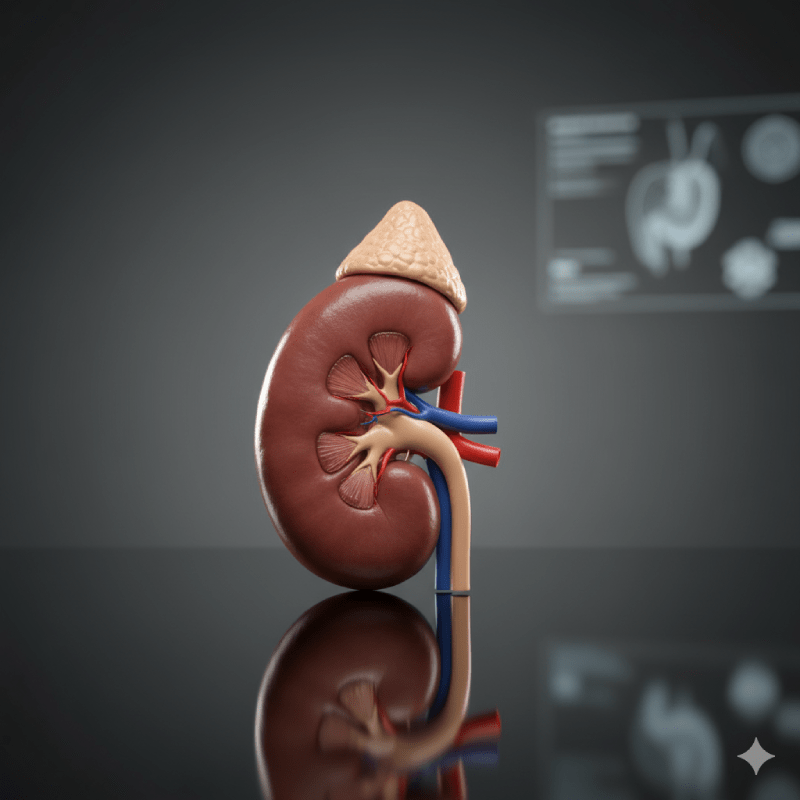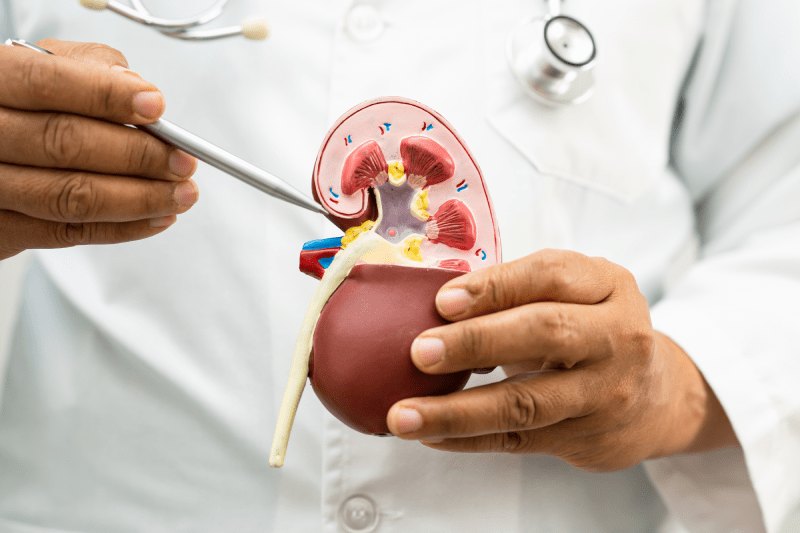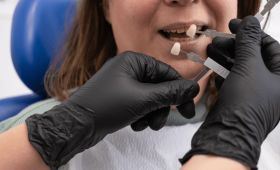How Much Does a Kidney Transplant Surgery Cost in Turkey?
The cost of a kidney transplant surgery in Turkey can vary widely depending on the patient’s overall health, the complexity of the surgery, and the experience of the hospital and surgeon. On average, the total cost of a kidney transplant surgery ranges between $15,000 and $30,000.
This pricing usually includes comprehensive pre-operative evaluation tests, surgical operation costs, the duration of the hospital stay, and the initial post-operative check-ups. The final price is determined by the medical equipment used and the patient’s specific needs.
Why are Kidney Transplant Centers in Turkey Popular?
Turkey has become an internationally recognized center in the field of kidney transplantation due to its expert staff, modern technology, and high success rates. Turkish hospitals are equipped with the latest medical devices and provide services at international standards. The fact that prices are more affordable compared to Western countries is one of the most important factors for patients choosing Turkey. This allows patients to access high-quality treatment at a more reasonable cost.
What Are the Additional Costs Required for a Transplant?
The cost of a kidney transplant surgery does not only include the surgical operation expenses. Additional expenses include detailed pre-operative tests, post-operative intensive care and hospital stay duration, the cost of immunosuppressive drugs to be used after the transplant, and possible additional treatments. If a live donor transplant is to be performed, the donor’s surgery and hospital expenses should also be included in this total cost.
How Does the Pre-Transplant Evaluation Process Work?
The pre-transplant evaluation process is carried out to determine the suitability of the recipient and the potential donor for the transplant. This process includes comprehensive blood tests, tissue typing, radiological imaging (ultrasound, tomography), and psychological evaluations. The evaluation is performed to determine the overall health status of both the recipient and the donor, post-transplant risks, and the success rate of the operation, and it can take several days.

How Is the Live Donor Transplant Procedure Performed?
Kidney transplantation in Turkey is most frequently performed from a live donor. In this procedure, one kidney is taken from a healthy donor with compatible blood and tissue types and transplanted into the patient. The surgery is performed simultaneously in two separate operating rooms for both the recipient and the donor. Live donor transplants offer a significant advantage in terms of organ availability and a shorter waiting period.
Is Cadaveric Transplant Possible?
Cadaveric kidney transplantation is also performed in Turkey, but this rate is lower due to the difficulty of finding a live donor. Cadaveric organ donation occurs when the organs of a person who has suffered brain death are donated. When a suitable organ is found, the transplant is performed on the most suitable patient on the waiting list. This process may require a longer and more uncertain waiting period depending on the availability of the organ.
How Long Does the Transplant Surgery Take?
The duration of a kidney transplant surgery varies depending on the condition of the patient and the donor. On average, a live donor transplant surgery can last 3 to 5 hours. The surgery duration depends on the surgeon’s experience, the techniques used, and any possible complications that may be encountered during the operation. The post-operative intensive care and hospital stay process are as important as the operation itself.
How Long Does the Post-Operative Intensive Care Process Last?
The post-operative intensive care process varies depending on the patient’s condition and recovery speed. Generally, patients are monitored in the intensive care unit for a few days after the surgery. During this process, the patient’s vital functions are closely monitored, the function of the transplanted kidney is checked, and precautions are taken against possible infections or rejection reactions.
What is the Total Hospital Stay Duration?
The total hospital stay for a patient who has undergone a kidney transplant usually varies between 10 and 15 days. This period depends on the patient’s post-operative recovery speed, the presence of possible complications, and their overall health status. The patient is discharged when the transplanted kidney begins to work stably and they are able to meet their basic needs independently.
Who Covers the Surgery Costs of the Donor?
According to Turkish law, the entire cost of the donor’s surgery and hospital expenses in a kidney transplant is covered by the recipient’s health insurance or budget. This is an important item added to the recipient’s total cost. It is illegal for the donor to cover their own surgery costs or to donate a kidney for commercial purposes, and this is meticulously examined within the framework of ethical rules.
What Are the Additional Expenses for Patients Coming From Abroad?
Patients coming from abroad must also include travel, accommodation, and living expenses in their budget in addition to the surgery and hospital costs. For the transplant process, the patient may need to stay in Turkey for at least 1 to 2 months before and after the surgery. During this period, the accommodation, food, and other living expenses of the patient and their companion constitute a significant cost.
Is Accommodation and Interpretation Service Included in the Price?
Some large and international patient-oriented hospitals may include accommodation and interpretation services in the package price. However, these services are usually charged separately. The international patient units of the hospitals assist patients in arranging such services. Interpretation service is of vital importance, especially for the correct understanding of complex medical terms.
What is the Level of Experience of Surgeons in Turkey?
Turkey has very experienced surgeons in the field of kidney transplant surgery. These surgeons hold a respected position both nationally and internationally and have performed thousands of successful surgeries. Many Turkish surgeons have been trained abroad, presented their work at international conferences, and contributed to medical literature. This experience makes Turkey a reliable center for transplant operations.
What is the Cost of Post-Transplant Medications?
The most important medications that patients must use for life after a kidney transplant are immunosuppressive (immune system suppressing) drugs. The cost of these drugs varies depending on the brand and dosage used. The prices of these drugs may be more affordable in Turkey, but abroad, they must be covered by the patient’s health insurance systems in their home country. This constitutes a long-term cost item and requires sustainable planning for the patient.
Who Covers the Cost of Post-Transplant Complications?
If a complication occurs immediately after the surgery, during the hospital stay, these costs are generally considered to be included in the initial surgery package. However, the cost of complications that arise after the patient is discharged and require additional treatment must be covered by the patient’s own health insurance or budget. Therefore, having comprehensive health insurance is very important.
How is the Recovery Process After Live Donor Surgery?
The recovery process of a live donor is generally faster than that of the recipient. The donor can be discharged from the hospital within a few days after the surgery and can return to their normal life within a few weeks. The health of the donor and the success of the surgery are of critical importance for a quick recovery. It is important to closely monitor the donor and have them undergo regular check-ups during this process.
How Are Living and Travel Expenses Covered in Turkey?
Living expenses in Turkey are lower than in Western countries. However, for a long-term treatment like a kidney transplant, it is important to plan for accommodation and other living expenses in advance. Hospitals usually offer suggestions for contracted hotels or apartments near the hospital. The accommodation, food, and local transportation expenses of the patient and their companion constitute a significant part of the total budget.

Is It Necessary to Allocate a Budget for Emergencies?
Yes, for a major operation like a kidney transplant, it is always important to allocate a budget for unexpected situations and emergencies. Situations such as possible complications or a prolonged hospital stay can create unexpected additional costs. Therefore, it would be a smart plan to add an emergency fund of 10% to 20% to the initial budget.
Is There an Age Limit for the Surgery?
There is no definitive age limit for a kidney transplant. What is important is the patient’s overall health status and their capacity for post-transplant recovery. The surgery can be performed on both children and elderly patients. The patient’s suitability is evaluated according to the criteria determined by the transplant team based on their age. Generally, the patient’s biological age is considered rather than their chronological age.
In What Cases is an Application for Transplant Made?
End-stage renal failure is the most common reason for applying for a transplant. Dialysis patients, patients with a significant reduction in kidney function, and patients with certain genetic or chronic kidney diseases can apply for a transplant. The decision for a transplant is made by a multidisciplinary board after a comprehensive evaluation to increase the patient’s quality of life and chances of survival.
How to Find a Suitable Donor for Transplant?
For a live donor transplant, a suitable donor is first sought among the patient’s relatives and family members. Factors such as blood type compatibility, tissue compatibility, and overall health status are evaluated. If a suitable donor cannot be found, the patient is placed on the cadaveric list. Ethical rules and legal regulations are of great importance in donor selection.
Is Interpretation Service Included in the Surgery Price?
Many hospitals in Turkey offer special services for international patients. Interpretation services are also included in these services. Professional interpretation services are provided to ensure that patients can communicate better with their doctors and medical staff. This service is usually offered as part of the total surgery package and provides a great convenience for patients.
What Are the Transplant Success Rates?
The success rates of kidney transplant centers in Turkey are above the world average. The one-year patient and kidney survival rate in live donor kidney transplants is over 95%. These high success rates are due to the hospitals’ state-of-the-art equipment, the surgeons’ experience, and the importance given to post-operative intensive care.
Is Physical Therapy Needed After a Transplant?
It is a common situation for patients to need physical therapy after a kidney transplant. A prolonged hospital stay and the surgery itself can lead to a decrease in muscle strength and general mobility. Physical therapy sessions aim to help the patient return to their daily activities in a short time and accelerate their overall recovery. The cost of this treatment is evaluated within the total package or is indicated as an additional expense.
Are Visa and Travel Insurance Required for the Surgery?
Yes, patients traveling to Turkey for medical treatment must cover expenses such as visa and travel insurance themselves. The visa requirement depends on the agreements between the patient’s home country and Turkey. Travel insurance provides financial protection in case of unexpected emergencies or a prolonged treatment period.
Which Hospitals Should Be Preferred?
There are many reputable hospitals in Turkey that perform kidney transplant surgeries. When choosing a hospital, the hospital’s experience, the surgeons’ expertise, success rates, and international accreditations should be taken into consideration. University hospitals and private transplant centers in large cities (like Istanbul, Ankara, Izmir) stand out in this field.
How Do Post-Operative Check-Up Processes Work?
Post-kidney transplant check-up processes continue for the rest of the patient’s life. Check-ups are more frequent in the first year and the intervals are extended later. These check-ups are done to monitor the functions of the transplanted kidney and the patient’s overall health status. Patients who come from abroad continue these check-ups with their own doctors after returning to their home country, and it is important for them to stay in touch with the transplant center.
How Is the Health and Safety of the Donor Ensured?
The health and safety of the donor are the most important priority of the transplant process. The donor undergoes a comprehensive health screening before the surgery. It is confirmed that the donor is psychologically and physically healthy and is donating their organ voluntarily. It is ensured that the kidney to be taken from the donor is sufficient for the remaining kidney to continue its normal function.
Are Cancer Screening Tests Performed During the Transplant?
Yes, it is mandatory for patients and donors being evaluated for a kidney transplant to undergo comprehensive cancer screening tests. These tests are done to reveal the presence of a hidden cancer in the patient or donor. The presence of cancerous cells can cause the transplant procedure to be stopped or postponed.
Is There a Long Waiting List for the Transplant?
There is no waiting list for live donor transplants in Turkey, as the donor comes with the patient. For cadaveric transplants, there is a waiting list, and the waiting period varies depending on the availability of the donor organ. Turkey is running active campaigns to increase organ donation and has taken significant steps in this regard.

What Are the Accommodation Options for the Companion After the Transplant?
Kidney transplant patients need a companion during the post-operative recovery process. For the companion’s accommodation, hospitals usually recommend specially designed guesthouses or contracted hotels near the hospital. These accommodations are ideal for the patient’s companion due to their proximity to the hospital and comfort.
How Expert Is the Medical Team?
Kidney transplant surgeries are performed by an experienced and multidisciplinary team consisting of a surgeon, a nephrologist, an anesthesiologist, an infectious diseases specialist, and a transplant coordinator. Each member of the team is an expert in their field and collaborates for the patient’s health at every stage of the transplant process.
What Is the Quality of Materials Used in Transplant Surgery?
In kidney transplant surgeries in Turkey, internationally standardized and approved materials are used. The surgical instruments, implants, and medications used for the transplant are of the highest quality. This ensures that the surgery is performed safely and that successful results are obtained.
How Does the Process of Getting a Price for Transplant Work?
Getting a price for a transplant from hospitals in Turkey usually begins with the patient sending their medical reports and imaging results to the hospital’s international patient unit. After evaluating these reports, the medical team provides the patient with a personalized treatment plan and an estimated cost quote. This quote should transparently include all cost items.
What Are the Possible Ethical and Legal Issues in the Transplant Process?
Kidney transplantation is a field where ethical and legal regulations are strictly followed. In live donor transplants, issues such as the donor’s voluntariness, donating their organ without coercion, and not engaging in organ trafficking are meticulously examined. Kidney transplants in Turkey are performed in accordance with the strict rules set by the Ministry of Health.



